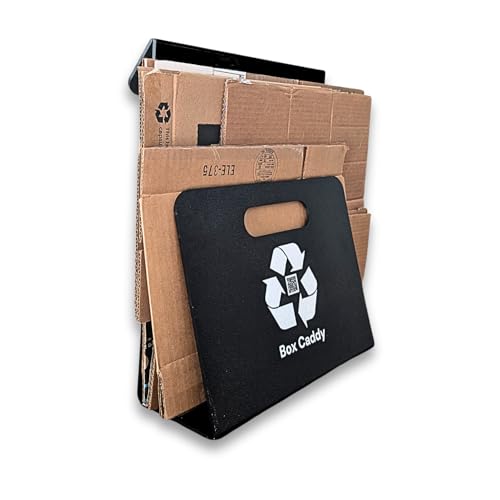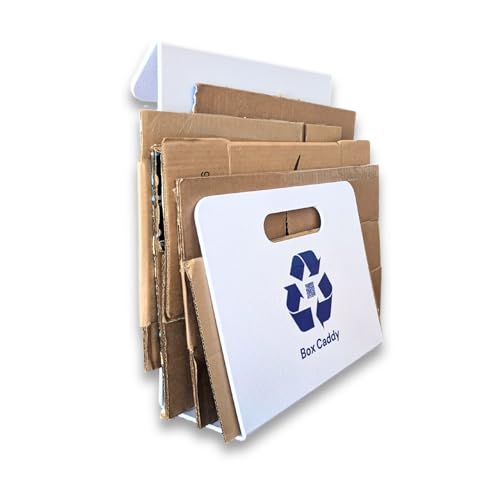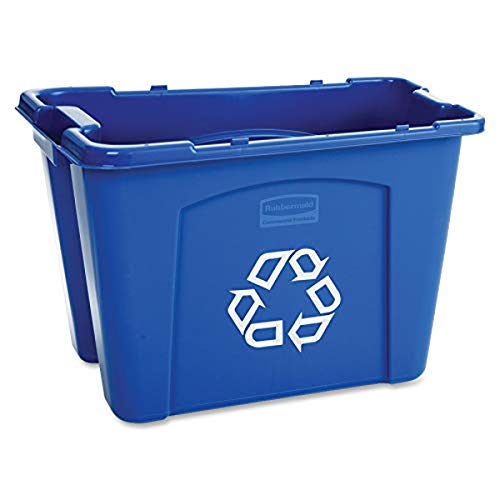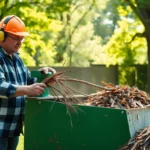Wondering where to recycle that pile of wood scraps cluttering your garage? You’re not alone. Every year, millions of tons of wood waste end up in landfills when they could be repurposed, recycled, or reused in environmentally friendly ways.
We’ve researched the best options for wood recycling so you don’t have to waste time searching. From local recycling centers to creative DIY projects, there’s a solution for every type and amount of wood waste. By choosing to recycle your wood materials, you’ll not only clear space in your home but also contribute to sustainable practices that benefit our planet.
Why Recycling Wood Matters for the Environment
Recycling wood plays a crucial role in environmental conservation by diverting millions of tons of valuable timber from landfills each year. The Environmental Protection Agency reports that over 12 million tons of wood waste enters U.S. landfills annually, representing nearly 10% of all waste material. This important volume takes up valuable space and decomposes slowly, producing methane—a greenhouse gas 25 times more potent than carbon dioxide.
Trees serve as natural carbon sinks, storing carbon dioxide throughout their lifetime. When wood products decompose in landfills, they release this stored carbon back into the atmosphere, contributing to climate change. Properly recycled wood maintains carbon sequestration while reducing the need for virgin timber harvesting.
Conservation of forest resources occurs directly through wood recycling initiatives. Every ton of recycled wood saves approximately 17 trees from being cut down, protecting vital wildlife habitats and maintaining biodiversity. Natural forests provide essential network services including water filtration, air purification, and soil stabilization that benefit both wildlife and human communities.
Energy conservation represents another substantial benefit of wood recycling. Manufacturing products from recycled wood requires 30% less energy than producing items from virgin timber. This energy reduction translates to lower carbon emissions across the supply chain and diminished fossil fuel consumption in manufacturing processes.
The economic advantages of wood recycling extend beyond environmental benefits. The wood recycling industry creates jobs in collection, processing, and manufacturing while generating tax revenue for local economies. Many small businesses specialize in reclaimed wood products, transforming what would be waste into valuable commodities with unique character and appeal.
Types of Wood That Can Be Recycled
Recycling facilities accept exact categories of wood materials for processing. Common recyclable wood includes untreated lumber, tree limbs, branches, and shrubs (with root balls removed), which are typically processed into mulch or compost.
Treated vs. Untreated Wood
Untreated wood is the safest option for recycling programs across the country. These natural wood products undergo straightforward processing into environmentally beneficial mulch or compost without risk of chemical contamination. Treated or chemically preserved wood presents important recycling challenges due to potential contaminants like arsenic and creosote. Most recycling centers explicitly exclude these materials from their accepted items list due to environmental and health risks. Exact facility rules vary by location, so it’s essential to contact your local recycling center before dropping off any wood that might contain preservatives.
Painted and Stained Wood Considerations
Painted or stained wood faces strict limitations at most recycling facilities. These finishing treatments often contain toxins that can leach into soil when processed into mulch or other products. Recycling centers typically reject wood with any paint or stain unless their guidelines specifically state otherwise. Local policies determine exceptions to this rule—for example, some specialized facilities like A1 Organics in Colorado may accept certain finished wood products under exact conditions. Before transporting any painted wood for recycling, we recommend calling ahead to confirm acceptance criteria and avoid wasted trips.
Local Wood Recycling Centers and Facilities
Finding local wood recycling centers is an essential step in responsibly disposing of wood waste. Maryland offers several specialized facilities across multiple counties that accept various types of wood materials for recycling and repurposing.
Municipal Recycling Programs
Municipal recycling programs in Maryland typically focus on standard recyclables rather than wood waste specifically. Charles County’s recycling centers primarily handle common household recyclables but don’t explicitly mention wood acceptance in their programs. Similarly, Baltimore City residential recycling facilities accept a variety of materials for disposal, though wood isn’t specifically listed among them. It’s always best to contact your local municipal recycling program directly to inquire about their wood recycling capabilities, as services may vary by location and might change over time.
Private Wood Recycling Companies
Private companies provide more specialized wood recycling services throughout Maryland. Edrich Lumber, Inc. maintains proper licensing for wood recycling and regularly accepts wood waste from contractors and local companies. Butler Wood Recycling Services, LLC in Point Of Rocks offers comprehensive wood recycling answers at their 4039 Tuscarora Road location. Other notable options include Calvert Wood Recycling, LLC in La Plata, Beuchert Excavating, Inc. in Newburg, Chesapeake Wood Recycling in Elkton, and Bussard Brothers Industry Supply in Monrovia. These private facilities often handle larger volumes and more diverse types of wood waste than municipal programs, making them ideal for construction debris, land clearing materials, and other substantial wood disposal needs.
Big Box Store Recycling Programs
Big box home improvement retailers sometimes offer recycling programs for various materials, though wood recycling services vary significantly by location. These programs can provide convenient drop-off points for homeowners and contractors looking to dispose of wood waste responsibly.
Home Depot’s Wood Recycling Policy
Home Depot doesn’t currently advertise any nationwide wood recycling services based on available information. Local store policies may differ about wood waste acceptance, as recycling programs often depend on regional partnerships and facilities. Customers should contact their nearest Home Depot location directly to inquire about exact wood recycling options. Some stores might participate in limited-time recycling events or have partnerships with local waste management companies that accept certain wood types.
Lowe’s and Other Retailers
Lowe’s, similar to Home Depot, doesn’t promote any standard wood recycling program across all locations. Regional variations exist in recycling services offered by these major retailers, with some potentially accepting exact wood materials depending on local waste management infrastructure. Customers interested in recycling wood through Lowe’s or other home improvement retailers should call their local store for current policies. The Earth911.com directory serves as a helpful resource for finding wood recycling options by ZIP code when retail programs aren’t available.
For the most accurate and up-to-date information about wood recycling at any major retailer, direct communication with local stores is essential. Policies change frequently based on local regulations, partnerships, and sustainability initiatives.
Creative DIY Options for Wood Recycling
Instead of discarding old wood, transform it into functional and decorative items for your home and garden. Creative DIY recycling projects offer practical answers for wood that might otherwise end up in landfills while adding unique, personalized elements to your living space.
Furniture Projects
Wooden pallets serve as excellent raw materials for creating shelves, coffee tables, or planters with minimal modifications. Untreated lumber can be repurposed into bookshelves, side tables, or bench seating for outdoor spaces. Smaller wood scraps work perfectly for making cutting boards, coasters, or decorative wall hangings that add rustic charm to any room.
Garden Applications
Garden beds constructed from untreated lumber provide an excellent way to use larger wood pieces while improving your outdoor space. Compost bins built from wooden slats offer both functionality and an environmentally friendly disposal method for kitchen scraps. Pathway edging made from reclaimed wood creates defined borders for garden walkways while preventing soil erosion and weed growth.
Create Ideas
Wall art created from distinctive wood pieces can become striking focal points in your home décor. Utensil holders crafted from wood blocks add warmth and character to kitchen countertops. Children’s toys made from sanded, untreated wood scraps provide safe, natural playthings that stimulate creativity and imagination.
Upcycling Projects for Old Wood
Pallet furniture transforms discarded shipping materials into stylish outdoor seating, bed frames, or coffee tables with minimal investment. Wooden signs made from reclaimed planks create rustic decorative elements after simple sanding and painting. Storage answers built from wooden crates offer modular shelving or under-bed storage that combines practicality with repurposed materials.
Composting Untreated Wood
Wood chips derived from untreated lumber provide a carbon-rich “brown” component essential for balanced compost piles. Small, decomposed wood pieces applied as mulch help garden beds retain moisture and suppress weeds while slowly breaking down to enrich the soil. Safety considerations remain paramount – painted or chemically treated wood must be avoided in composting applications, as toxins can leach into soil and potentially contaminate plants or groundwater.
Online Marketplaces for Recycling Wood
Several online platforms offer convenient ways to recycle or sell unwanted wood. Major eCommerce sites like eWorldTrade and Alibaba provide dedicated sections for scrap materials, connecting you directly with potential buyers and manufacturers interested in wood waste. eWorldTrade specifically features a category for scrap materials, making it easier to find the right buyers for your wood.
Local marketplace options include Craigslist and Facebook Marketplace, where you can list wood waste for nearby buyers to purchase. These platforms work particularly well for smaller quantities of wood that don’t warrant commercial recycling services. Remember to exercise caution when arranging meetings with strangers from these platforms.
Specialized recycling services like DTG Recycle operate multiple centers in regions such as Washington state, offering professional wood recycling answers. These companies often accept various types of wood waste and may even provide pickup services for larger quantities.
Checking with your local government resources can reveal municipal wood recycling programs in your area. Many cities have established successful wood waste initiatives that offer financial incentives while reducing landfill costs. Contact your local environmental department or waste management agency for exact information about available programs.
Trade associations related to woodworking or recycling frequently maintain networks of professional services dedicated to wood recycling. These organizations can provide valuable connections to established recycling companies that follow industry best practices for wood waste management.
Benefits of Choosing the Right Wood Recycling Method
Selecting appropriate wood recycling methods delivers substantial environmental advantages by diverting waste from landfills and preserving natural resources. The reduction in wood waste directly contributes to decreased methane emissions and helps maintain carbon sequestration in recycled materials.
Economic benefits emerge through job creation and local economic support via recycled wood product industries. Communities across the country, from Ann Arbor to Boulder, have implemented successful wood recycling programs that generate employment opportunities while creating valuable products from what would otherwise be waste.
Community enhancement occurs when wood waste transforms into resources for local projects. Non-profit donations of usable wood extend material lifecycles while supporting community initiatives. The Circular UrbanWood Triconomy model in Ann Arbor exemplifies this approach by converting fallen trees into local wood products that benefit the entire community.
Recycling facilities like DTG Recycle in Washington State and Natural Wood Waste Recycling Facilities in Maryland demonstrate how specialized infrastructure can effectively process various wood types including tree logs, stumps, limbs, clean wood, brush, lumber, pallets, and untreated fencing. These dedicated facilities maximize resource recovery and ensure proper handling of different wood categories.
Conclusion
Properly recycling wood is an essential step toward environmental sustainability that we can all take. By choosing local recycling centers specialized facilities or DIY repurposing we’re not just clearing clutter but actively contributing to forest conservation carbon sequestration and energy efficiency.
Whether you’re dealing with untreated lumber from a renovation or branches from yard work there’s always a better destination than the landfill. Remember to check with municipal programs private recyclers and retailers about their exact acceptance policies.
The wood recycling industry continues to grow creating economic opportunities while preserving our natural resources. Let’s make responsible wood disposal a priority and transform what was once considered waste into valuable resources that benefit our communities and planet.
Frequently Asked Questions
What happens to wood waste that isn’t recycled?
Millions of tons of wood waste end up in landfills annually, contributing to methane emissions and climate change as decomposing wood releases stored carbon. In the U.S. alone, over 12 million tons of wood waste enter landfills each year. This represents a significant missed opportunity for resource conservation and environmental protection.
Which types of wood can be recycled?
Untreated lumber, tree limbs, branches, and shrubs (with root balls removed) are commonly accepted for recycling. These materials are typically processed into mulch or compost. Treated wood, painted wood, and stained wood face more recycling restrictions due to potential chemical contaminants that can leach into soil. Always check with local recycling centers for specific acceptance criteria.
Why is recycling wood important for the environment?
Recycling wood maintains carbon sequestration, conserves forest resources (saving approximately 17 trees per ton recycled), and supports biodiversity. Manufacturing products from recycled wood uses 30% less energy than using virgin timber, reducing carbon emissions. Additionally, wood recycling creates jobs, generates tax revenue, and supports small businesses specializing in reclaimed wood products.
Where can I recycle wood in Maryland?
Maryland offers several wood recycling options including specialized facilities like Edrich Lumber, Inc. and Butler Wood Recycling Services. While municipal recycling centers (like those in Charles County and Baltimore City) may have limitations on wood acceptance, private recycling companies often handle larger volumes and diverse types of wood waste. Contact facilities directly for current policies.
Do Home Depot and Lowe’s recycle wood?
Neither Home Depot nor Lowe’s advertises nationwide wood recycling programs. Services vary significantly by location, so it’s best to contact your nearest store directly for specific options. When retail programs aren’t available, use resources like Earth911.com to find local wood recycling options by entering your ZIP code.
What DIY projects can I make with recycled wood?
Transform old wood into furniture using wooden pallets and untreated lumber, create garden features like compost bins and pathway edging, or develop upcycled decor such as wall art and children’s toys. Just ensure you don’t use painted or chemically treated wood for garden applications to prevent soil contamination. These projects help reduce waste while creating useful items.
What are the economic benefits of wood recycling?
The wood recycling industry creates jobs, generates tax revenue, and supports numerous small businesses specializing in reclaimed wood products. Successful recycling programs across various communities strengthen local economies. Non-profit donations of usable wood, like the Circular UrbanWood Triconomy model in Ann Arbor, further enhance community development by converting waste into valuable resources.
Can treated wood be recycled?
Treated wood poses significant recycling challenges due to chemical preservatives that can contaminate soil and water systems. While untreated wood is readily recyclable into mulch or compost, treated lumber requires specialized handling. Some dedicated facilities can process treated wood, but availability varies by region. Always check with local recycling centers before attempting to recycle treated wood products.

















